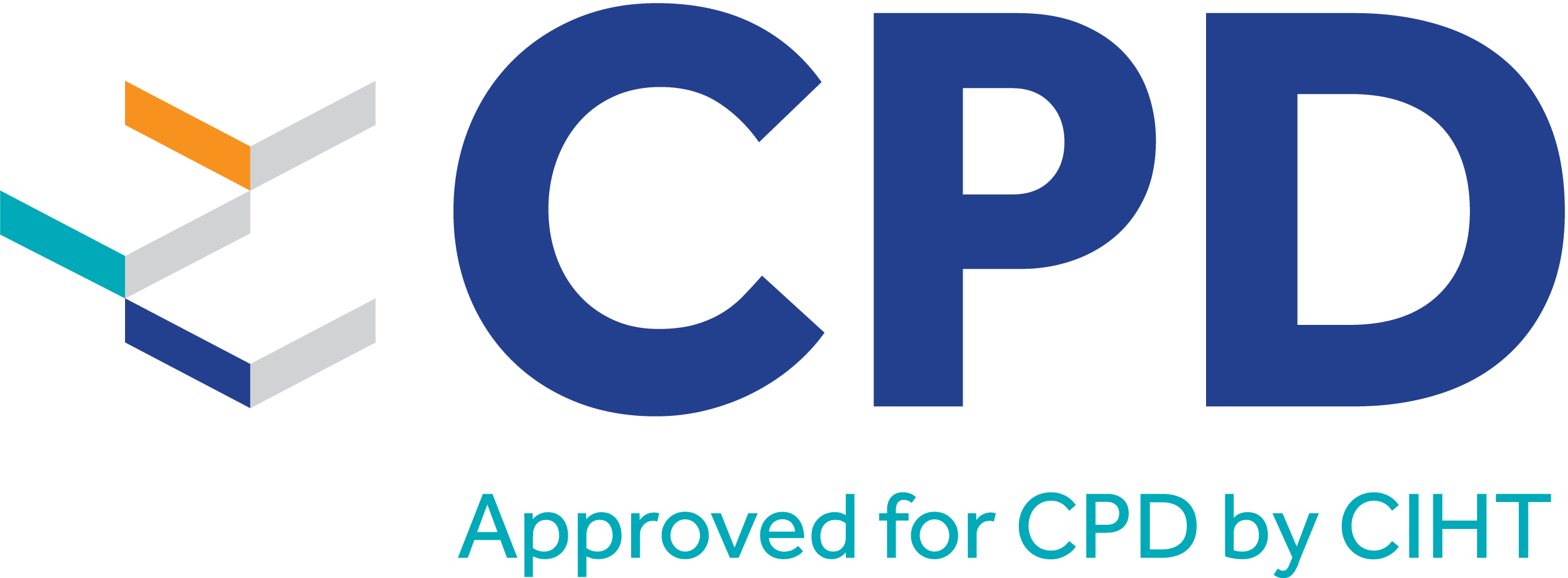

Procurement is too often seen as a hurdle to be overcome in the development of a project or service when, in reality, it is the key point where the success or failure of the project/service is determined, irrespective of what happens afterwards. Get it wrong during the procurement phase, or don’t prepare properly for that phase and it’s very difficult to get delivery back on track.
Discover how to work with public sector service managers, decision makers and procurement teams to demonstrate how procurement can be used as a strategic tool to engage new suppliers and stimulate new solutions while still enabling competition and best value.
There will be a Q&A session towards the end of the webinar where the audience can ask the speakers their questions.
This webinar is free for all CIHT Members to attend and is charged for CIHT partner employees and non-members.
When it comes to innovative procurement, many authorities are hindered by public procurement regulations which stop them from selecting specific innovative products and techniques from single or patented suppliers. The transport industry is currently facing ambitious targets to reach Net Zero by 2050, whilst also facing supply chain issues, soaring energy costs and political uncertainty. If there was ever a time to be innovative, it is now, and procurement should not stifle innovation or the ability to change approaches as circumstances change.

This webinar is open to both CIHT Members and Non-Members, but will be of particular interest to suppliers, public sector service managers and procurement teams.
Synopsis: The UK public sector spends £300bn a year buying good, services and works from the private sector. According to the Department for Transport, the total public expenditure on transport in the UK (including network rail) for 2020/21 was £45.1bn, and the departmental budget for 2022/23 has been set at £50bn. This represents a huge market and a significant lever public authorities can use to create and shape markets.
The UK Innovation Strategy (2021) identifies public procurement as a powerful tool for catalysing the innovation economy, both in the sparking of new products and by providing the commercial funding which enables businesses to scale. Procurement-based innovation has the added benefit of leveraging existing spend, rather than requiring additional public resources to drive strategic outcomes like net zero.
However, despite all this potential to drive strategic outcomes, public procurement is largely under-exploited as a mechanism for sparking and scaling innovation.
Join this masterclass to hear how Connected Places Catapult is working with public sector service managers, decision makers and procurement teams to demonstrate how procurement can be used as a strategic tool to engage new suppliers and stimulate new solutions.
Biography: Sam Markey is Ecosystem Director for Place Leadership at Connected Places Catapult, the UK’s innovation accelerator for cities, transport and place leadership. With oversight of Connected Places Catapult’s strategic investments, partnerships and programmes with places across the UK, Sam is responsible for ensuring the organisation delivers on its’ mission to connect people, businesses and communities to a future of sustainable growth and prosperity.
Before joining Connected Places (then Future Cities) Catapult in May 2016, Sam was a senior policy and implementation advisor in the UK Government Cabinet Office, focused on public service reform, policy innovation, and the application of emerging technologies to tackle policy challenges. Sam started his career in local government, for the London Borough of Barnet, where he was responsible for creating the original and infamous ‘Barnet Graph of Doom’ which laid out the budget challenge facing local government from falling central grants and rising demand. On Twitter he is @SamMarkey.

Synopsis: Procurement in the public sector is currently undergoing a major transformation. The new Procurement Bill currently progressing through Parliament aims to improve the way public procurement is regulated. It will be simpler, more flexible, more transparent and open up opportunities for small businesses and social enterprises. Whilst value-for-money must still be a key objective when assessing tenders, procurement officers are already having to consider a whole range of qualitative indicators such as net carbon zero, social value and environmental impact. These benefits cannot always be defined and specified at the tender stage, and a degree of partnership working and pre-tender dialogue may be required.
This presentation will examine how public sector procurement can promote innovation and new technologies while still enabling competition and best value.
Biography: Mahmood Siddiqi’s career in Transport and Highways spans four decades working for four high performing London boroughs.
For the past ten years he was the director of transport and highways for both the Royal Borough of Kensington and Chelsea and the London Borough of Hammersmith and Fulham. He was instrumental in forming the bi-borough department bringing significant savings to both councils through sharing resources, joint procurement and comparing the two authorities’ methods.
He was responsible for delivering some of the most iconic public realm schemes in the capital including the award-wining Exhibition Road in South Kensington. The scheme was completed on time and within budget as a result of an innovative pre-contract dialogue.
Mahmood is the past president of the Local Government Technical Advisors Group.

If you have any questions regarding this event, please contact the CIHT Conferences & Events Team on +44 (0)20 7336 1555 or conferences@ciht.org.uk

Got a question?
t: +44 (0)20 7336 1555
e: info@ciht.org.uk